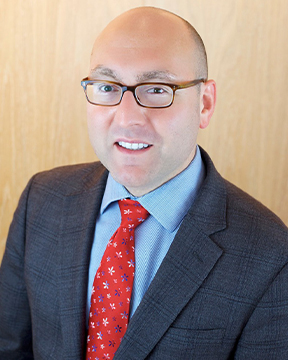By Cheryl Guttman Krader | Reviewed by Reena N. Rupani, MD, and Peter A. Lio, MD

Integrative medicine has gained a foothold in dermatology care. Fueled by growing patient and provider interest and supported by accumulating evidence, it is expected to have a greater role in the future, according to Reena N. Rupani, MD, and Peter A. Lio, MD.
Dr. Rupani and Dr. Lio are co-chairs of the American Academy of Dermatology’s Expert Resource Group (AAD ERG) on integrative medicine.

“There is an undeniable interest among patients in the type of holistic, human-encompassing care that defines integrative medicine, and it has also garnered the attention of clinicians. Although the AAD Integrative Medicine ERG was formally organized in 2018, it had already been in existence for about a decade through various shapes and forms, first as a task force and then as a work group,” said Dr. Rupani, who is Clinical Assistant Professor of Dermatology at ICAHN School of Medicine, Mount Sinai Hospital, New York, and a graduate of the Arizona Center for Integrative Medicine fellowship program.
“In 2020, the Integrative Medicine ERG has a solid and growing membership, and I believe that strongly demonstrates the demand for and interest in continued education on integrative medicine and dermatology among practitioners.”
The literature shows that integrative medicine has a burgeoning role in dermatology. Dr. Rupani noted that a recent query in Google Scholar using the term “integrative dermatology” yielded more than 30,000 hits. The results include thousands of journal articles along with dedicated textbooks or textbook chapters, including several written by Dr. Rupani and Dr. Lio.
Most recently, Dr. Rupani and Dr. Lio, along with a number of colleagues, have written a textbook titled Integrative Dermatology: Practical Applications in Acne and Rosacea. The book is being published by Springer with a planned release date in December 2020, and is expected to be the first in a series.
Dr. Lio is Clinical Assistant Professor, Departments of Dermatology and Pediatrics, Northwestern University Feinberg School of Medicine, Chicago, Founding Director, Chicago Integrative Eczema Center, and in private practice at Medical Dermatology Associates of Chicago. He noted that several years ago he was invited to co-author the chapter “Complementary and Alternative Medicine” in the current edition of Dermatology, a textbook edited by Jean Bolognia, MD, and colleagues, and he is currently updating the chapter for the forthcoming edition.
“Dr. Bolognia’s Dermatology is considered a definitive textbook in our specialty that is widely used in teaching and as a reference by practitioners. The inclusion of a chapter on complementary and alternative medicine within this comprehensive tome points to at least some degree of acceptance of integrative medicine,” Dr. Lio said.
Complementing, not replacing
Integrative medicine interventions are generally used in conjunction with conventional modalities, and they are comprised of a broad spectrum of methods. Use of the term “integrative” to describe this area of medicine obviates the need for the term “alternative,” said Dr. Rupani.
“Clinicians who practice integrative medicine do not reject, or seek to replace, what traditional allopathic medicine has already achieved,” she explained.
“By striving to incorporate guidance on nutrition, stress reduction, botanical supplements that may augment therapy or mitigate side effects, and successful aspects of other world traditions, such as Ayurveda and traditional Chinese medicine, we fully inhabit our roles as physicians and healers.”
Facing the skeptics
Critics who question the validity of integrative medicine approaches often raise concerns about the quantity and quality of the evidence, including lack of data from large-scale studies that incorporate blinding, randomization, and controls.
“These design features are the hallmark of our current body of accepted scientific evidence. However, it has become increasingly important to note that the approaches taken in integrative care are more personalized and perhaps not amenable to the double-blind, randomized, controlled trial model,” Dr. Rupani said.
Yet she acknowledged a need for more information on safety. “Safety studies, particularly with supplements, are what I feel are strongly needed before more physicians can feel comfortable adopting an integrative model,” she said.
Finding new venues
Dr. Lio said that physicians considering integrative medicine approaches should take into account the evidence pointing to efficacy and safety. Accessibility/practicality is another factor to consider.
“Although there may be some data supporting an approach from traditional Chinese medicine, it may not be a practical option because of time or cost issues,” he explained.
According to Dr. Rupani, the greatest amount of research on benefits of integrative medicine approaches exists for conditions stemming from inflammation, including acne, rosacea, atopic dermatitis, and psoriasis. Dr. Lio said that it seems rational to add integrative therapies for the management of these diseases, which can have many pathogeneses or triggers. He suggested that integrative medicine approaches can be particularly helpful when patients do not respond adequately to conventional therapies.
“In trying to find new venues of therapy rather than just giving up, it is natural and reasonable to gravitate toward alternative and complementary approaches,” he said.
Integrative medicine can also be particularly helpful when patients experience side effects from conventional therapies or are concerned about potential risks.
For example, Dr. Lio recommends topical coconut oil and oral vitamin D supplementation to some patients with atopic dermatitis. He explained that coconut oil has been shown to have antibacterial activity, appears to have some anti-inflammatory properties, and improves the skin barrier. Vitamin D may provide benefits based on its positive effects on skin immunity, barrier function, and inflammation, he said, adding that a number of studies have reported that it is not universally helpful for patients with atopic dermatitis.
Dr. Rupani mentioned that dietary modifications, such as reducing calorie intake for psoriasis and reducing dairy and carbohydrate intake for acne, can often make a real difference in clinical outcomes. In addition, she said that patients suffering from hair loss often benefit from the use of mindfulness-based practices or adaptogenic herbal supplements to address the “stress” component of their conditions.
“More broadly, any patient who needs a greater sense of agency in their own health and healing can benefit from simple guidance on diet, exercise, and stress reduction. These lifestyle and behavioral interventions are unlikely to do harm and more likely to show benefit, both from the individual power that comes from ‘controlling’ one’s own health and from the general improvement in whole-body wellness that comes from taking better care of oneself,” she said.
Next: Learning opportunities


